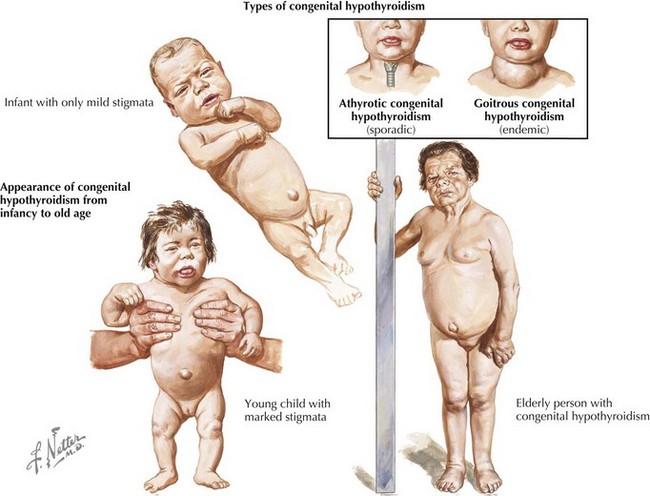16 Nutritional Deficiencies
Assessment of a pediatric patient’s nutritional status includes evaluation of the child’s current and past medical problems, dietary intake, growth parameters, physical examination, and often laboratory tests. Establishing normal growth and development, prevention, and early identification of nutritional deficiencies is the goal in assessing a patient’s nutritional status. When evaluating a patient for specific nutritional deficiencies, clinical findings as well as laboratory data may be helpful. Children with mild nutritional deficiencies often present with nonspecific signs and symptoms that are discussed in Chapter 17. However, when severe deficiencies are present, the presentation will be more pronounced, as described in this chapter. Serum albumin can be used to determine long-term nutritional status, and serum prealbumin provides assessment of the adequacy of short-term dietary intake (see section on malnutrition for further information). A complete blood count (CBC) with red blood cell (RBC) indices can be used to identify deficiencies of iron, folate, vitamin B12, and anemia of chronic disease. Laboratory assessment of fat-soluble vitamins (A, E, and D) is more easily measured than are water-soluble vitamins.
Deficiencies
Iodine
Iodine is an essential component of thyroid hormone that is crucial for growth and development. Iodine is absorbed through the intestines in the form of iodide and is then taken up by the thyroid gland for incorporation into thyroxin (T4) and triiodothyronine (T3). Before the iodization of salt in 1920, iodine deficiency was endemic in the United States, and it is still the most common preventable cause of mental retardation worldwide. A deficiency of iodine is the most common cause of goiter, an enlargement of the thyroid gland, which, if large enough, may produce symptoms such as hoarseness or dysphagia as a result of local compression. Iodine deficiency and subsequent thyroid hormone deficiency can manifest with symptoms of hypothyroidism, such as weight gain, fatigue, and constipation. The most severe consequence of iodine deficiency is congenital hypothyroidism (mental retardation, deaf-mutism, gait abnormalities, and short stature), which can be prevented by adequate iodine intake both during pregnancy and early infancy (Figure 16-1).
< div class='tao-gold-member'>
Stay updated, free articles. Join our Telegram channel

Full access? Get Clinical Tree



